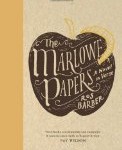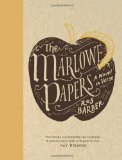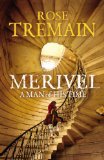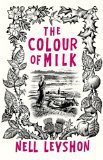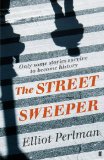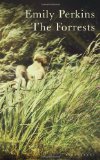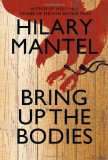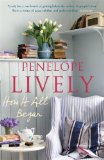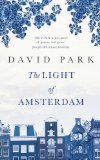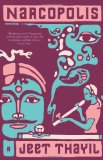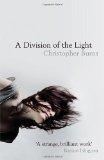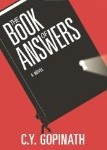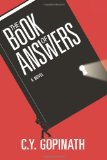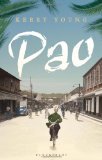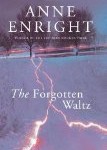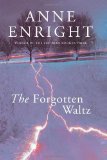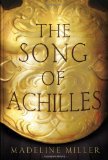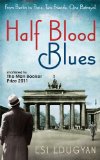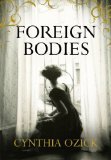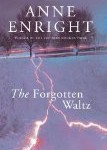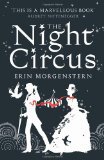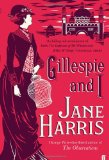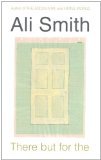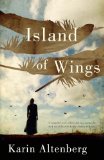2012 has been an amazing year for fiction. Last year I struggled to find 13 books good enough to justify a place on a Booker longlist, but this year I’m overwhelmed by the quality. I’ve read at least 20 books that deserve longlisting and have heard about many others from fellow book lovers. Whittling down the list to just 13 is an almost impossible task and I don’t even have anyone to argue with!
Historical Fiction
It is a good year for historical fiction and as the 2012 Man Booker judges seem to have a strong connection to the genre I suspect that there will be a few on the list.
I think that The Marlowe Papers by Ros Barber is most deserving of a place. Written in verse, it is so different from anything else published recently and shows a real literary talent.
Rose Tremain was shortlisted for the Booker Prize in 1989 for Restoration. The sequel, Merivel, is published in September. I’m lucky enough to have a proof copy and although I haven’t finished reading it yet I can see it shares its engaging, atmospheric style. So far it is just as good as Restoration and therefore deserves longlisting.
The Colour of Milk by Nell Leyshon has a unique voice and should stand out from the crowd. I’d love to see it longlisted, and am keeping my fingers crossed that it is long enough to qualify.
My personal favourite is The Street Sweeper by Elliot Perlman. It raises important questions about historical fiction and how easily important events are forgotten. I’d love to see its profile raised and so am rooting for it in all literary prizes this year.
Character Studies
I often struggle with the slower pace of character studies and therefore have to rely on the opinion of others to sort the wheat from the chaff.
The Forrests by Emily Perkins seems to be standing head and shoulders above everything else this year. A wide range of knowledgeable people seem to think that this even has a chance of winning. Who am I to disagree?
In being shortlisted for the Orange Prize Painter of Silence has already shown its prize winning potential. This quiet story is widely loved and I’d be surprised if it didn’t make it onto the Booker longlist.
Previous Booker Winners/Nominees
I wasn’t a fan of Wolf Hall, but those who were are claiming that the sequel, Bring up the Bodies, is even better. I guess that means it should walk onto the longlist without question.
I was a big fan of The Wilderness, but Samantha Harvey has stepped up her game with All is Song. The writing quality is even better and the emotions come alive on the page. Unfortunately it crossed over the line and became a bit too literary for my taste, but that is what the Booker is all about! If you are willing to put the effort into peeling back the literary layers then you will be rewarded with a fabulous book.
How It All Began is littered with quotable sentences. It is a bit too quiet and domestic for my taste, but I can see the quality shining through. The many references to literature will mean it has an added appeal that I’m sure those Booker judges will admire.
Timothy Mo was shortlisted for the Booker Prize three times in the 1980s, but Pure is his first book for 10 years. The complexity of the prose put me off, but his fans are raving about this one and so I think it may well be fourth time lucky for him.
Everything Else
The Light of Amsterdam has received rave reviews from almost everyone who has read it. It has been described as “introspective” and so I’ve been avoiding it so far, but if it makes the longlist I’ll give it a try. I’m prepared to be surprised!
I have a passion for books set in India and so was drawn towards Narcopolis. The subject matter is a bit bleak, but the writing is amazing. It has the benefit of being different from everything else on my longlist.
A Division of the Light isn’t my usual sort of book, but a rare endorsement from Kazuo Ishiguro persuaded me to give it a try. I was instantly impressed by the vivid descriptions and the emotional tension that runs through it. It is very deserving of a longlist position.
The Ones I Didn’t Select
Narrowing down my selection to just 13 titles was very hard, especially since many of the contenders aren’t even published yet. I’ve had to rely on feedback from those in the industry who’ve read copies and my own instincts, but as every judging panel is individual it is almost impossible to predict which ones they’ll choose.
Here are some of the other books that I wouldn’t be surprised to see on the Booker longlist:
Mountains of the Moon by I J Kay, NW by Zadie Smith, The Yips by Nicola Barker, The Deadman’s Pedal by Alan Warner,
No Time Like the Present by Nadine Gordimer, The Chemistry of Tears by Peter Carey
, Foal’s Bread by Gillian Mears
, Sweet Tooth by Ian McEwan
My Prediction for the 2012 Booker Longlist:
- The Street Sweeper by Elliot Perlman
- Bring up the Bodies by Hilary Mantel
- All is Song by Samantha Harvey
- How It All Began by Penelope Lively
- Pure by Timothy Mo
- Painter of Silence by Georgina Harding
- The Forrests by Emily Perkins
- Merivel by Rose Tremain
- Narcopolis by Jeet Thayil
- The Colour of Milk by Nell Leyshon
- The Light of Amsterdam by David Park
- A Division of the Light by Christopher Burns
- The Marlowe Papers by Ros Barber
The Booker longlist is revealed on 25th July. I’m hoping that the judges will introduce me to some fabulous new fiction.
Who do you think will be longlisted for the 2012 Booker Prize?
